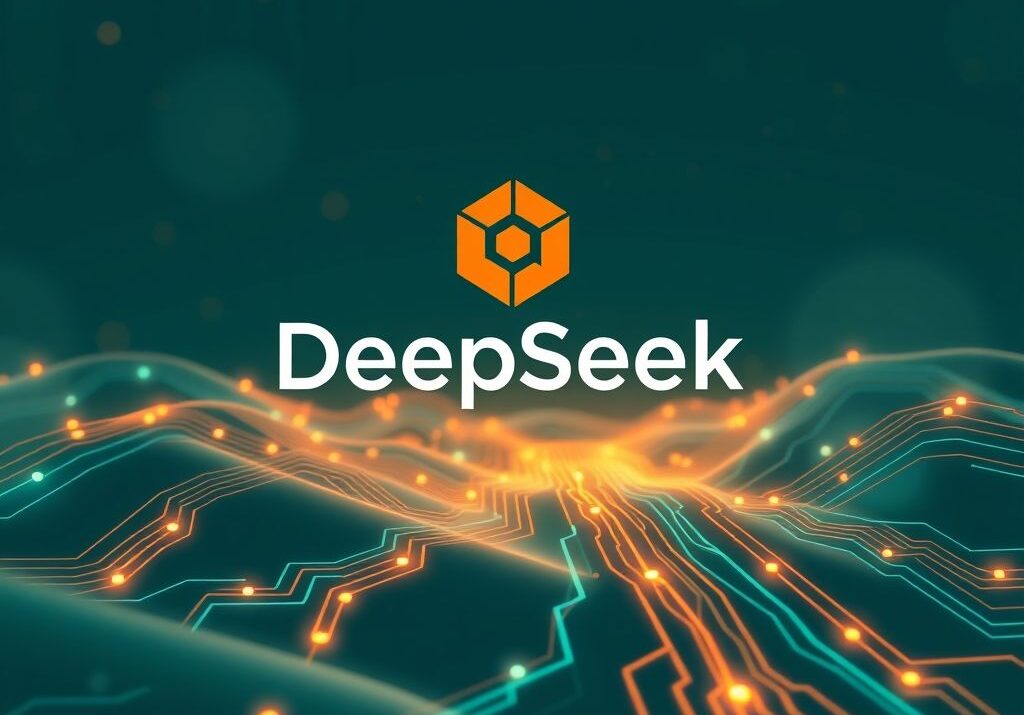Ever feel like the AI world is a race only the richest can win? You’re not alone. For a while now, it’s felt like training powerful AI models required massive data centers and equally massive budgets. But what if there was another way?
I recently stumbled upon an interesting article on VentureBeat titled “Rethinking AI: DeepSeek’s Playbook Shakes Up the High-Spend, High-Compute Paradigm,” and it got me thinking. The article highlights how DeepSeek, a company you might not have heard of yet, is challenging this high-spend, high-compute model. And honestly, it’s a breath of fresh air.
For too long, the narrative has been that only companies with deep pockets can truly innovate in AI. This creates a bottleneck, limiting who gets to participate and benefit from this technology. DeepSeek’s approach, as outlined in the article, suggests that smart algorithm design and efficient use of resources can achieve remarkable results, potentially democratizing access to powerful AI.
This isn’t just theoretical. The article implies DeepSeek is pushing the boundaries of what’s possible ahead of schedule. Think about that for a second. It’s not just about catching up, but potentially leapfrogging the competition through smarter strategies.
We’ve already seen this kind of shift in other areas of tech. Remember when only huge companies could afford supercomputers? Now you can do impressive things with a laptop. AI is likely on a similar trajectory.
According to a study by McKinsey, AI could contribute $13 trillion to the global economy by 2030, but only if it’s accessible and widely adopted. If the high-compute paradigm remains the only path forward, much of that potential will be locked away. (Source: https://www.mckinsey.com/featured-insights/artificial-intelligence/notes-from-the-ai-frontier-modeling-the-impact-of-ai-on-the-world-economy)
The shift that DeepSeek is bringing forth isn’t just about cheaper AI. It’s about smarter AI, AI that’s more accessible, and AI that’s potentially more adaptable to the specific needs of diverse communities, including those here in Cameroon. Imagine local businesses being able to leverage powerful AI tools without breaking the bank.
Here are my top 5 takeaways from this idea:
- Efficiency Matters: Smart algorithm design is just as crucial as raw computing power.
- Democratization of AI: Lowering the barrier to entry opens up opportunities for more people and organizations.
- Resourcefulness is Key: Innovation can flourish even with limited resources.
- Strategic Thinking Pays Off: Challenging conventional wisdom can lead to significant advancements.
- Focus on Accessibility: Making AI more affordable and easier to use benefits everyone.
It’s an interesting time to be following the AI space. DeepSeek’s moves, and others like them, might just rewrite the rules of the game and usher in a new era of accessible and impactful AI for all. Let’s keep an eye on this and see where it leads!
FAQ: Rethinking AI and DeepSeek’s Approach
1. What is the “high-spend, high-compute paradigm” in AI?
It’s the idea that training powerful AI models requires enormous computing resources and, therefore, huge amounts of money.
2. What makes DeepSeek’s approach different?
They are trying to achieve similar or better results with smarter algorithms and more efficient use of resources, rather than just throwing more money and hardware at the problem.
3. Why is the high-spend model a problem?
It limits who can participate in AI development, potentially excluding smaller companies, researchers, and developing countries.
4. How can efficient AI algorithms help smaller businesses in Cameroon?
More efficient algorithms mean smaller businesses could potentially use AI for tasks like customer service, data analysis, or marketing without needing to invest in expensive hardware or cloud services.
5. What are some examples of how AI could benefit Cameroon with a more accessible approach?
AI could be used to improve agriculture through precision farming, enhance healthcare diagnostics, or optimize transportation networks.
6. Is DeepSeek the only company challenging the high-spend model?
No, there are other companies and researchers exploring alternative approaches to AI development, but DeepSeek is being highlighted as a notable example.
7. What does this mean for the future of AI research?
It suggests that there will be more focus on algorithm optimization, resource efficiency, and making AI more accessible to a wider range of users.
8. What are the risks of relying too heavily on the high-spend model?
It could lead to a concentration of power in the hands of a few large companies and stifle innovation.
9. How can individuals in Cameroon learn more about AI and get involved?
Online courses, workshops, and communities focused on AI can provide valuable learning opportunities.
10. Where can I find out more about DeepSeek?
You can search for “DeepSeek AI” online to find their website and any publicly available information about their research and products.








